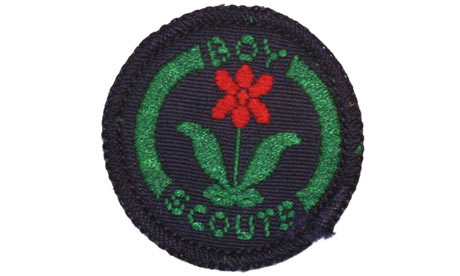
Scouts will for the first time will be given sexual health advice and may be issued with condoms under new guidelines issued by the Scout Association (PDF).
The guidelines are aimed mainly at leaders of explorer scouts, aged 14-18, who may take their charges to visit sexual health clinics "to break illusions about what these services are and improve the uptake of advice".
The chief scout, Peter Duncan, said: "We must be realistic and accept that around a third of young people are sexually active before 16 and many more start relationships at 16 and 17.
"Scouting touches members of every community, religious and social group in the country so adults in scouting have a duty to promote safe and responsible relationships and, as an organisation, we have the responsibility to provide sound advice about how to do that."
The scouting movement has about 400,000 young members in Britain, approximately 85% of them boys.
The association said the sexual health guidance was designed to help young people develop the confidence, maturity and self-esteem to resist peer pressure to be sexually active until they are ready to make safe and informed decisions.
The new guidance says scout leaders can give out condoms but "only if they believe the young person is very likely to begin or continue having intercourse with or without contraception".
Contraception can only be offered to scouts if without it "their physical or mental health are likely to suffer", the guidance adds.
Scout leaders should also "encourage young people to resist pressure to have early sex" and encourage them to talk to their parents or carers. But they "should be prepared to offer appropriate information" if needed.
The Scouting Association said young people might feel more comfortable discussing sexual issues in the informal setting of a scouts group.
Amy Brunsdon, 17, an Explorer scout, said: "It is so much more meaningful to discuss these issues with people of our own age and in a context we know we can trust."
Duncan, a former Blue Peter presenter, said: "I firmly believe that the confidence, skills and self-esteem young people gain through the incredible range of activities scouting offers is the best way to equip them not to feel pressured into a sexual relationship before they are ready."
Other suggested activities for explorer scouts include role-playing exercises on learning to say no.
Leaders of scouts aged 10 to 14 are told they may seek advice and should be given appropriate information and contact details for local sexual health services.
Leaders of beavers and cubs - ages six to 10 - are told it is unlikely they will need to take "positive action" to address sexual health issues.
Dr Karla Blee, a trustee on the Avon County Scouts Executive who helped to draft the guidance, said it should help scouts develop a more mature approach to their sexual health.
"At a time when 10% of sexually active teenagers are estimated to have a sexually transmitted infection and 50% of teenagers say they do not use contraception, it is absolutely right that the Scout Association gives its young people the information they need to stay safe while ensuring they develop the confidence and self-esteem to resist the pressures to become sexually active too early," she said.
The children's minister, Beverley Hughes, said the new guidance would help promote advice to all young people.
"This guidance underlines the consensus among young people, parents and professionals on the importance of providing accurate information and advice on sex and relationships," she said.

